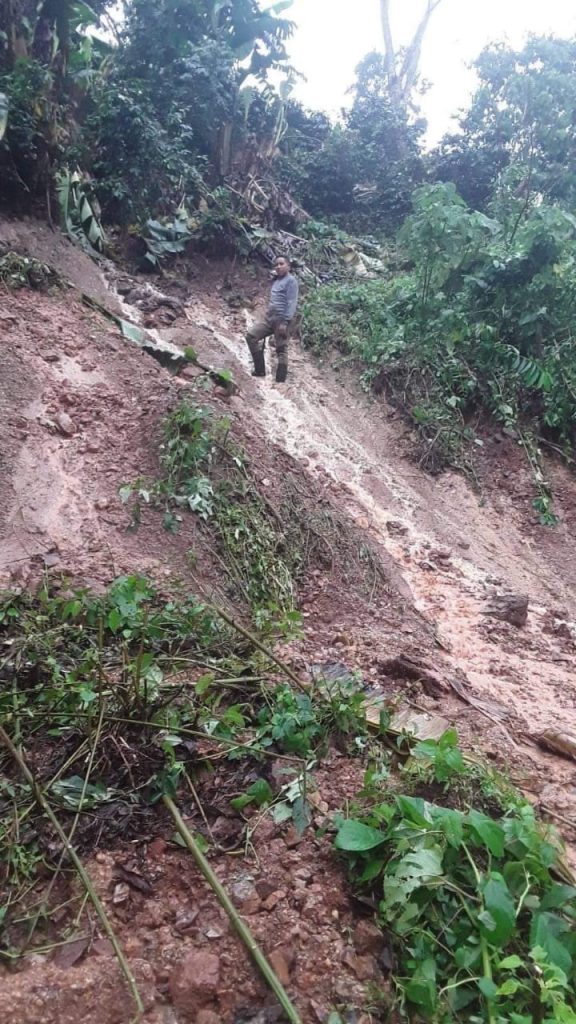
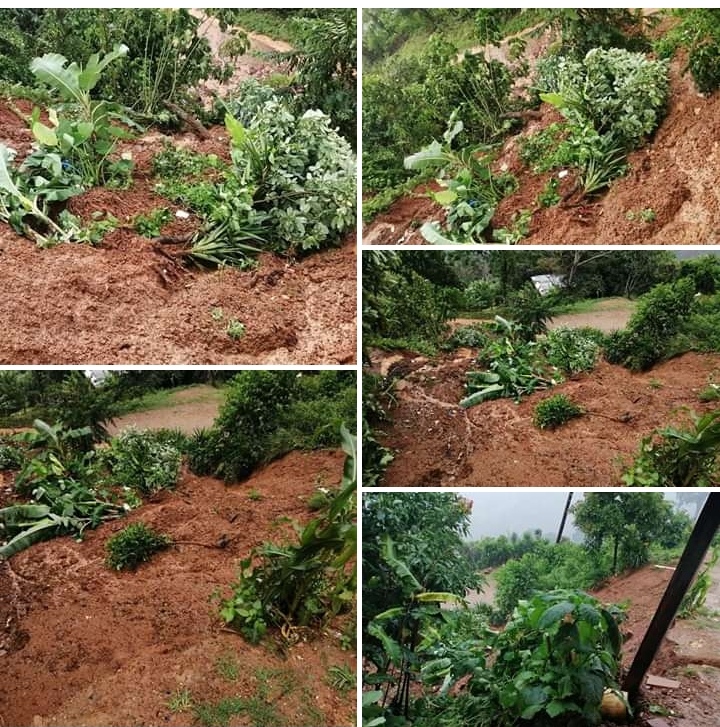


Covid had shaken up the Honduran way of life and the work of Vecinos Honduras. While the effort has shifted away from capacity building, education, and agriculture to health care prevention, it is clear that the capacities that have been built up in the preceding years to give the community the confidence to take action themselves. Here is a list of some of the unexpected effects of the pandemic. Some are good and some are not. It is taken from the Covid-19 Emergency Response Report for April 8-June30th.
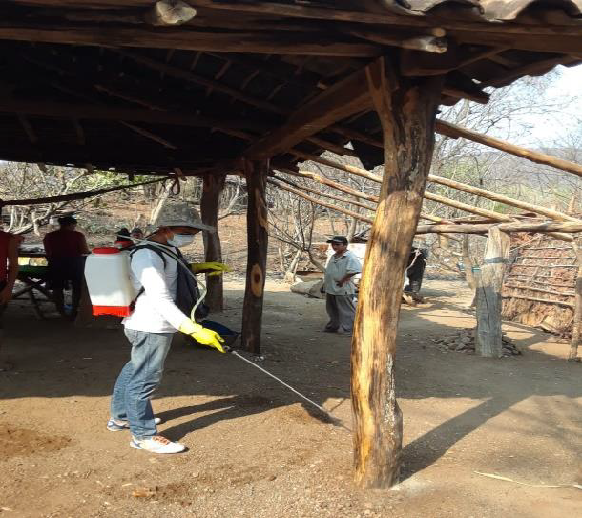
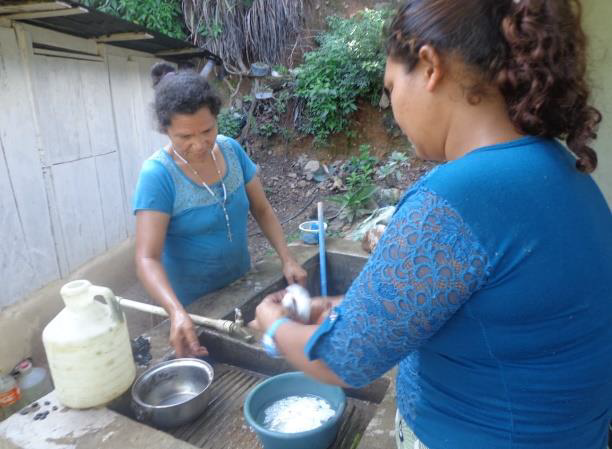

By Gabriel Newman, Board Member of World Neighbours Canada
I want to tell a short story about a conversation that occurred just before the Covid pandemic took over the Americas.
Back in March, Edwin Escoto, the Executive Director for our partner organization Vecinos Honduras, was in BC giving talks about life in Honduras. While I was with him, I got to watch him talk to about two hundred high school students. He talked about corruption, poverty and hunger in Honduras; he spoke about the human rights that are not afforded to many; and he talked about VH’s approach to helping communities build capacity and to advocate for their own rights. It is a lot to absorb in an hour-long talk and I could tell that many students felt overwhelmed, but they also felt compassion. The most common response I heard from students and teachers was, “what can we do?”

Honestly, I didn’t have a great answer for that. The trip was not for fundraising purposes but education. I wasn’t going to try to sign them up as monthly donors and World Neighbours doesn’t “do” anything in a concrete sense other that raise funds and leverage those funds for grants so that people in the communities can gain the skills to “do the work.”
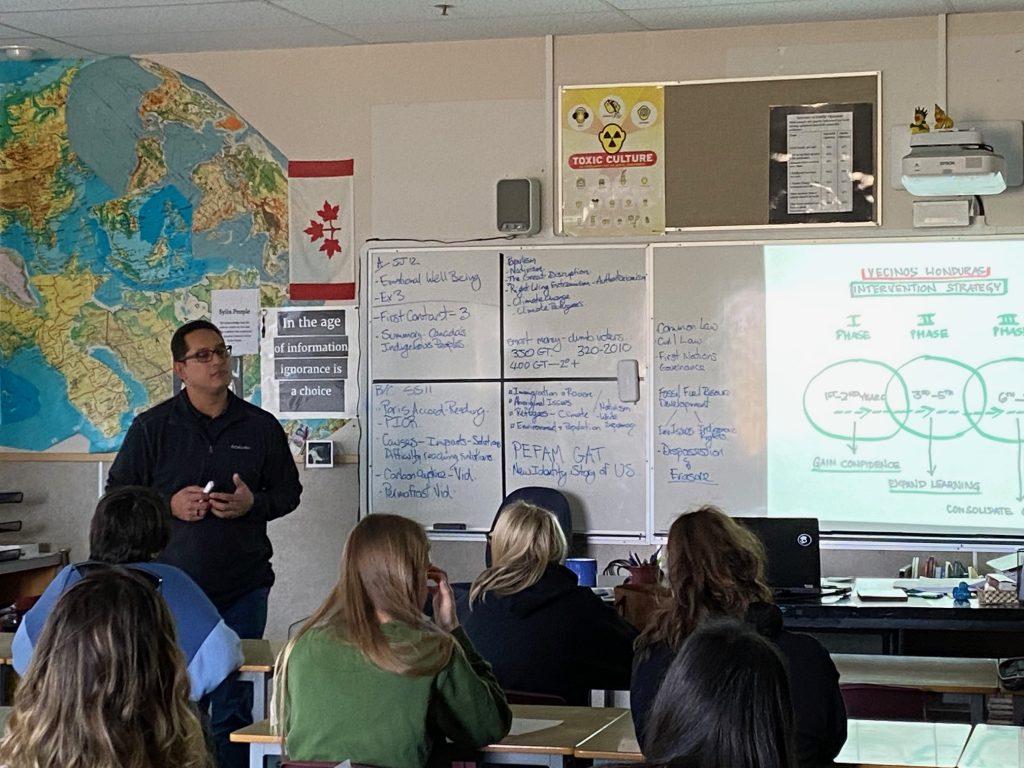
One teacher said that they do an annual fundraiser and was curious that if they raised $500 for VH, what it could go towards. Edwin quickly mentioned hygiene for students. As part of the slate of programs and training VH conducts in communities, proper hygiene training for children in schools (hand washing) would have a huge impact on the health of students. I could tell it wasn’t the sexiest of answers. It wasn’t concrete and it felt somewhat basic. I figured I would have to think of something more interesting and important. Then came Covid.
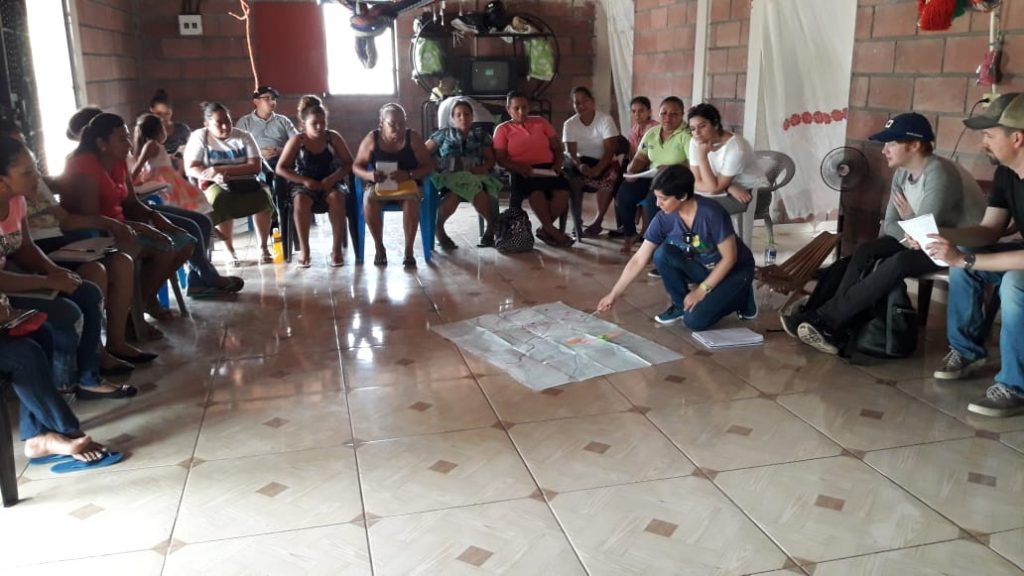
While the communities that VH works in lack food security, water and easy access to hospitals, they do understand hygiene and community health through VH’s training. That gives them a huge advantage in battling Covid. These communities already have a collection of volunteers to organize and spread information and conduct health training. And most importantly the children and adults understand the importance of hand washing, the main defence against contracting the virus! This does not make these communities immune from Covid, but it will help slow the spread should the virus reach these isolated people. And it will arrive soon if it hasn’t already. People are leaving the heavily affected cities to go to their family homes in the villages and bringing Covid with them. What I dismissed as uninteresting became the cornerstone for helping these communities protect themselves.
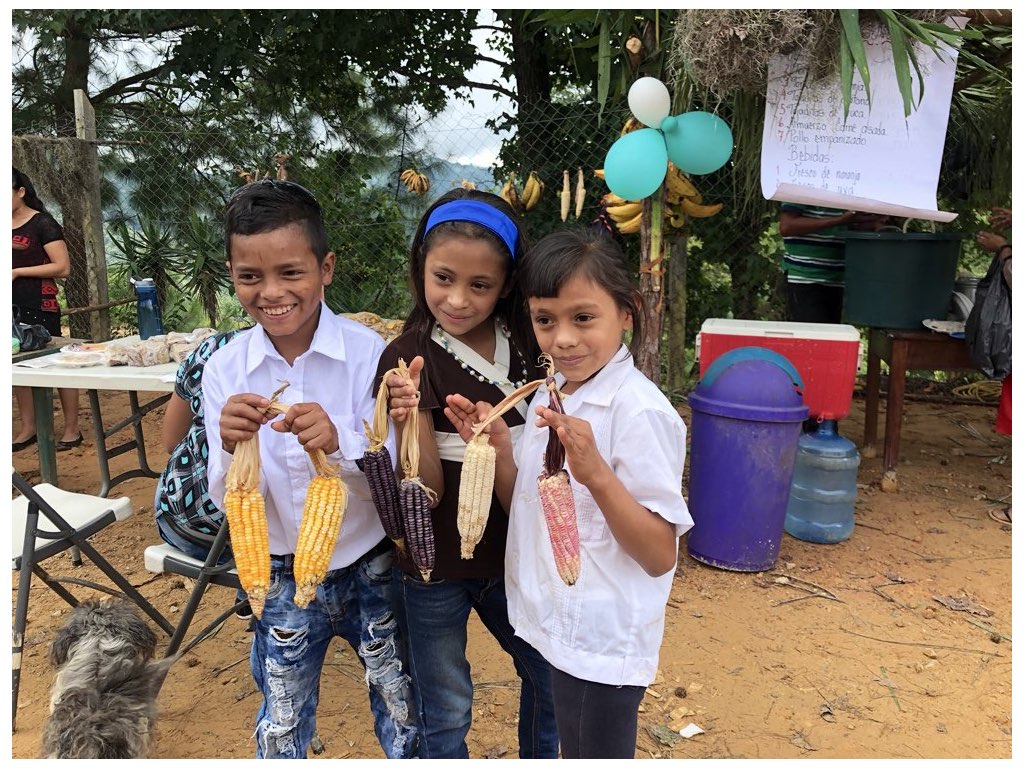
So, the next time I am asked where funding could be allocated, I will definitely say, “hygiene in schools.” It is inexpensive and basic, yet this pandemic has demonstrated it is also life saving.
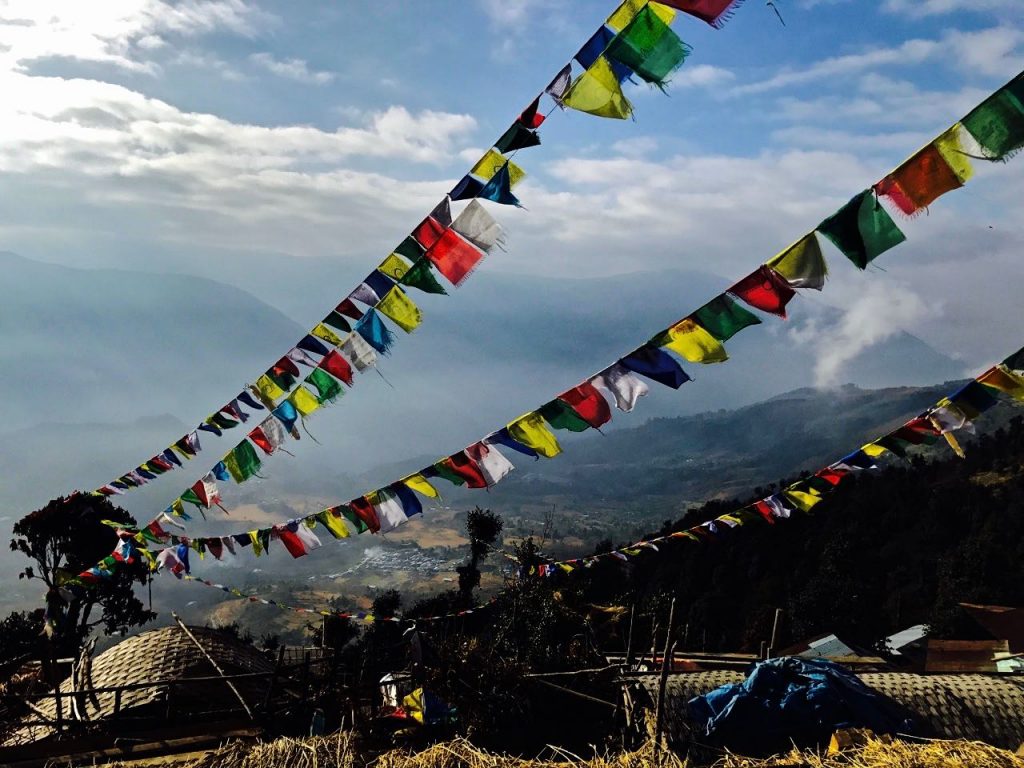
Our contacts from TSS (Tamakoshi Sewa Samiti) in Nepal informed us that the Nepalese government has extended their lockdown from May 24 until June 2nd. This is following the first couple deaths due to Covid19 and an increase in cases.
Originally Nepal reported very few cases with no more than 11 by April 10th but it was also not in a good position to test for Covid. Now, of May 25, the government has pledged to test 600,000 people, or 2 percent of the population. Currently they have only tested 51,642 people with Polymerase Chain Reaction (PCR) technology, while 95,192 people have been tested with rapid test kits, according to Nepal’s Ministry of Health and Population.
In the last week the numbers of confirmed cases has more than doubled to 682 confirmed cases. The restrictions are tighter than before.
Suresh Shrestha, the Executive Director of TSS told us “Now a person is required two approvals from government administration offices both from origin and destination districts (if they wish to travel). However, it is still flexible to transport medical personnel, security persons, media persons, commodities suppliers and emergency medical services without any prior approval. Kathmandu and Ramechhap was considered safe zone (green zone), but due to movement of people from Terai and other affected areas into these districts, it has become a risk zone as well.”
The government is claiming the increase of cases is because of a failure to test Nepalese migrant workers who returned home from India.
Source:
Nepal plans to conduct COVID-19 test among 2 percent of population – Xinhaunet.com
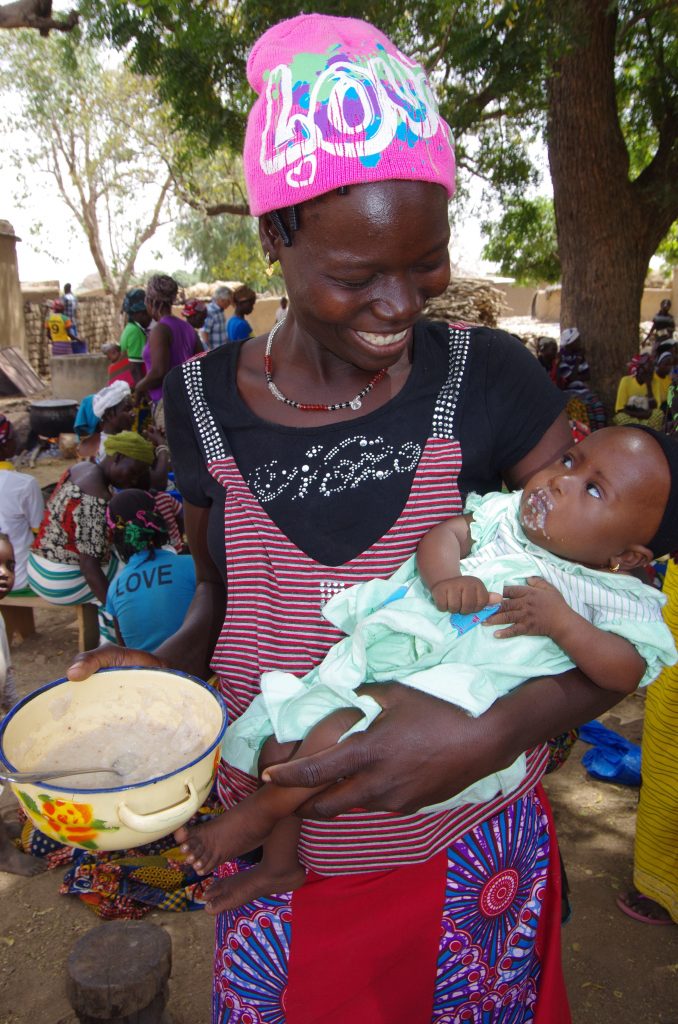
If you are wondering how to honour your mother or grandmother this Mother’s Day, why not consider making a donation in her name to World Neighbours Canada and have your money go directly to support mothers not as fortunate as yours.
All our projects support some of the poorest women in areas of Nepal, Honduras and Burkina Faso and provide opportunities for women, and often mothers, to learn skills that will allow them to earn a little money of their own, improve their health and better care for their children. This is especially true right now, as we all attempt to deal with the life-changing effects of COVID-19.
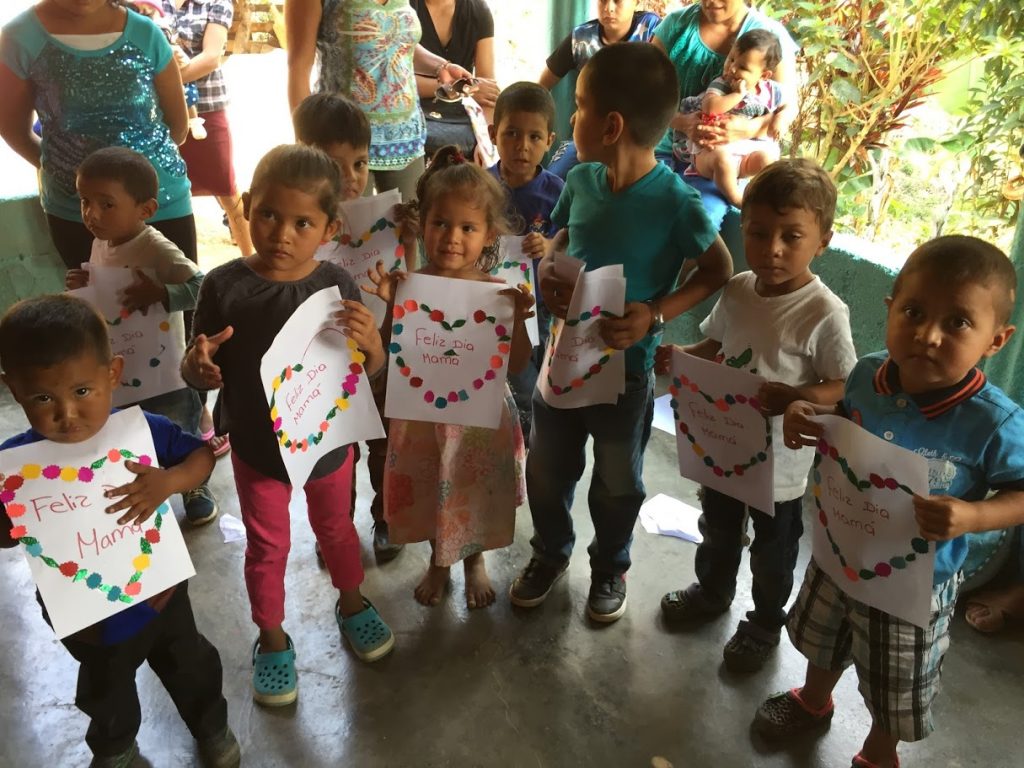
Should you wish to have a card sent to your mother as a memento of your gift, please send an email to the following address: ( peterjudy1352@gmail.com ), along with your name and the name and address of the recipient and a card will be mailed shortly.
Information about making a donation is available on the website. (www.worldneighbours.ca )
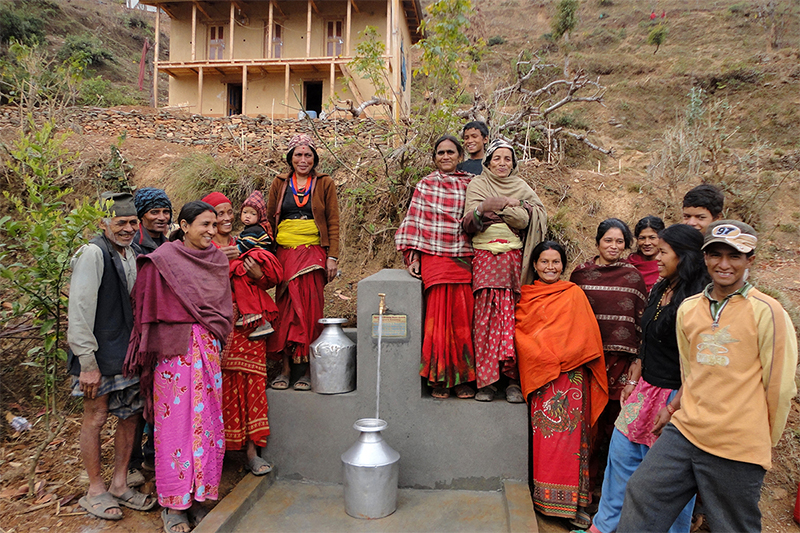
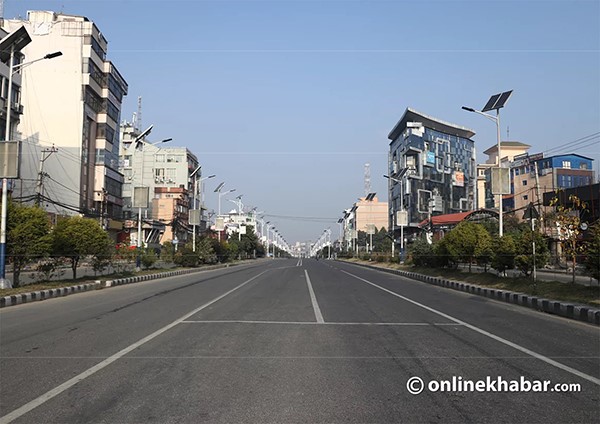
At World Neighbours Canada we are waiting with concern to see how the Covid-19 pandemic will affect our partners and the communities they work. Unfortunately, the countries they are located in are ill prepared to deal with the crisis. This is certainly the case in Nepal where health care funding has been traditionally low, they lack the basic health care equipment to test and treat Covid positive patients, and complaints of corruption have stalled getting proper safety equipment to health care workers. As a result, very few people have been tested so the current number of confirmed cases of 9, as on April 10th, is not an accurate assessment of the situation.
In order to limit the spread of the virus the government closed it borders and enforced a mandatory lockdown. Suresh Shrestha, the Executive Director of our partner NGO, Tamakoshi Sewa Sameti (TSS) puts it this way:
“Since 24th March, we are under the official lockdown period. About 90% people are confined within their homes. All offices and shops are closed nation wide. As per the government order, it has been prohibited all public movement outside the home, except for medical & purchase of food stuffs. All public and private vehicles without special permission are forbidden in the streets. All national and international flights have been suspended until 30th April. The daily necessary food selling stores are open for 2-3 hours only. Anyone defying the government order will be punishable according to Infectious Disease Control Act.”
The lockdown has not stopped many Nepalese who were stuck working abroad in India to return home to their communities. There is an increased risk that they are bringing the virus with them to remote communities.
On April 7th Nepal reached an agreement with the World Bank to access $29 million dollars to improve testing facilities, equip health facilities with personal protective equipment, create new ICU, beds, and isolation facilities, and strengthen public institutions to coordinate the response.
This is good news as without testing, and certainly without testing outside of Katmandu, there is no way to assess the seriousness of the situation, or to deal with it.
We are hoping the communities we work with are able to weather the storm. At least they have access to water and improved sanitary conditions thanks to the work of TSS and those communities.
Sources:
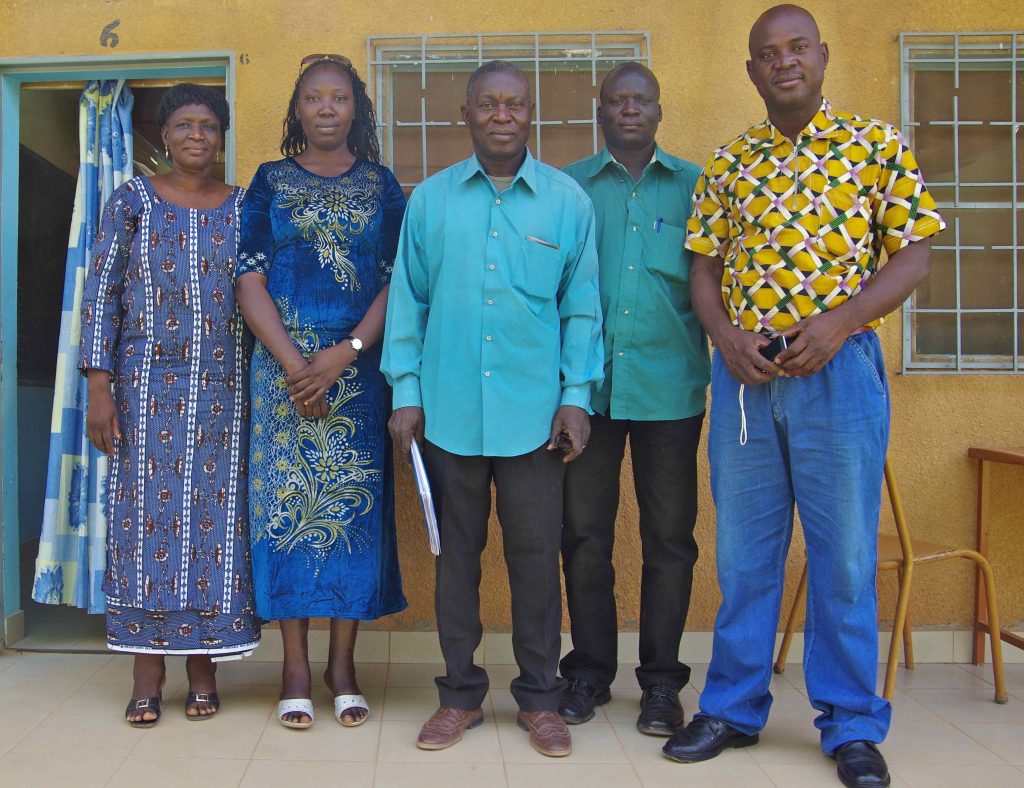
By Judy Gray
I recently came across two articles which describe the current situation in Burkina Faso as it teeters on the verge of a major crisis. During these strange and unusual times when COVID-19 is at the forefront of everyone’s mind, one would expect the virus to be the number one concern in Burkina Faso also and it is certainly mentioned regularly. However, in the Eastern region where our project villages are, there is an even greater worry right now – the daily fear of jihadist terrorists entering a village and harming individuals. Charles Tankoano, coordinator of our local partner organization, keeps us updated on these difficulties but also reports that his staff continue to support people as much as they can. We are actively discussing with Charles if and how the program needs to change to meet people’s needs and keep staff safe.
The following excerpt from an article published in a journal, The Intercept, describes the situation in the country:
On March 18, Burkina Faso suffered the first confirmed Covid-19 fatality in all of sub-Saharan Africa…Tiny, impoverished, and conflict-scarred, Burkina Faso is now West Africa’s worst-affected country, with 146 confirmed cases, including four government ministers [as of April 4, that number has risen to 302 cases and 16 deaths].
Burkina Faso has seen more than its share of hardships: poverty, drought, hunger, coups. But the coronavirus poses a new kind of threat to a country wracked by a war that has displaced around 700,000 Burkinabe in the last year. Many of those people now find themselves under great physical and emotional strain, lacking proper shelter, food, and the other necessities — all of which makes them more vulnerable to the pandemic. Experts fear that Covid-19 could decimate entire settlements of Burkina Faso’s displaced. The number of IDPs (Internally Displaced Persons), will soon reach 1 million. [Though the number of IDPs is much lower in the Eastern region where our project villages are located, the same situation is occurring as families flee their villages to avoid living with the fear of terrorists, according to Charles Tankoano in his recent semi-annual report].

While Burkina Faso has recently adopted a Covid-19 response plan that takes IDPs into account, it doesn’t change the fact that 135 health centers in the country have closed due to violence, 140 have reduced their services, and 1.5 million Burkinabe now depend on humanitarian health assistance. Covid-19 will exacerbate an already dire situation.
Survivors of a recent attack on Rofenega (northern region, close to Mali) recounted a story that is increasingly common among farmers and cattle herders in rural Burkina Faso. Armed men on motorbikes roared into villages just before dusk and began shooting. “They shot our men at the gates of our homes,” Dialla Seybata, a 50-year-old survivor of the massacre, also stranded in Kaya, told The Intercept. [To date, there have been no deaths in the project villages supported by World Neighbours Canada, but the unannounced arrival of terrorists is occurring more and more frequently. According to Mr. Tankoano, the terrorists are preventing information sessions from taking place and even preventing the planned agricultural improvements from getting underway].

Another article, published by the UN News, paints a similar picture about the current critical situation in Burkina Faso:
The number of food-insecure people in Burkina Faso is expected to triple in the next lean season…Humanitarians have repeatedly warned that chronic insecurity linked to successive drought and violent extremists who exploit the lack of a strong State presence have created an unavoidable crisis, which WFP said has now extended to the coastal countries of Sierra Leone and Liberia. Forecasts indicate that Burkina Faso will see food insecurity more than triple, to more than 2.1 million people in June, up from at least 680,000 at the same time last year.
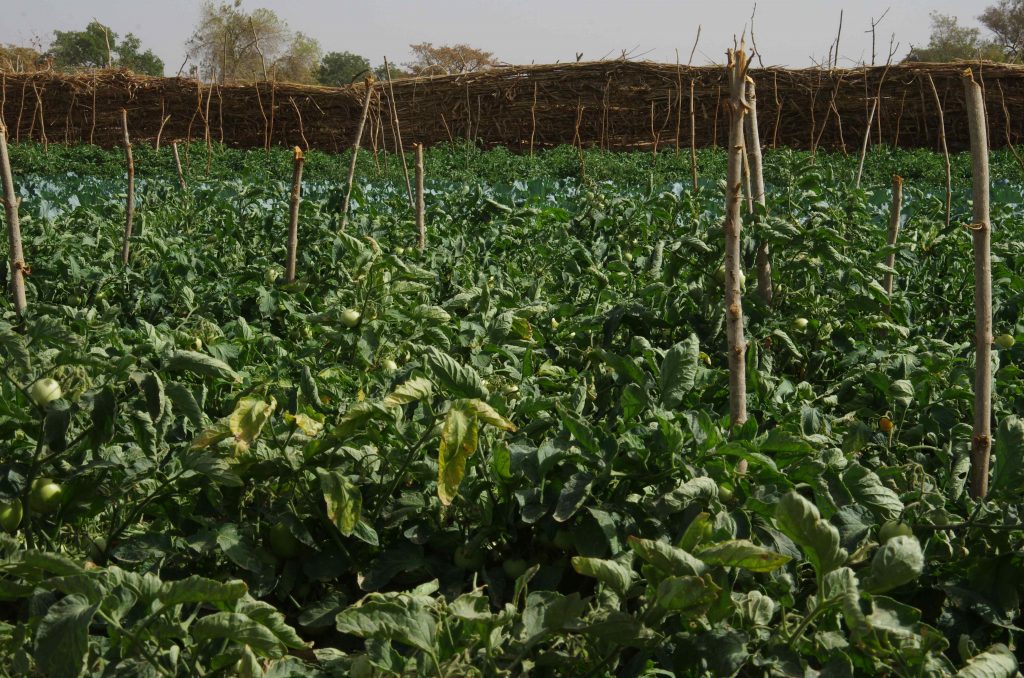
“This is a crisis layered on top of a crisis, and the situation risks getting out of hand,” said Chris Nikoi, the World Food Programmes’s Regional Director for West Africa. “People are on the brink – we must step up now to save lives – we are the only hope for millions.”
Here are the links to these two articles in their entirety:’
The Intercept (https://theintercept.com/2020/03/26/burkina-faso-africa-coronavirus/)
By Bruce Petch
The evolving COVID-19 crisis has reached the countries where World Neighbours Canada provides support. More than any previous disaster, this crisis reminds us that we are all “world neighbours” and our fortunes and misfortune are linked together. One of our partner organizations in the U.S., Groundswell International, stated it aptly – we are one human family and community. Our partner organizations in Burkina Faso, Honduras and Nepal are facing a great deal of uncertainty because the health systems in their countries are not at all prepared for an epidemic on this scale. Nonetheless, the organizations and the communities they serve have faced disaster before – whether hurricanes or flooding or earthquakes or insurgencies – and pulled together in solidarity. We stand with them and hope that the communities will recover quickly.
Burkina Faso had the misfortune to experience the first COVID-19 death in Africa. As of today, there are 207 confirmed cases and 11 deaths. Our partner organization, APDC, is still operating but they are not optimistic about the course of the disease: “All the members of APDC and their families are doing well. We are currently spared from the Coronavirus. But everyone is afraid because our health system cannot provide care. Our state is far from being able to afford to effectively cope with this epidemic if it gains momentum.” As if the virus were not enough, attacks by terrorists continue to plague the East Region of the country where APDC operates (the North has faced even more violence).
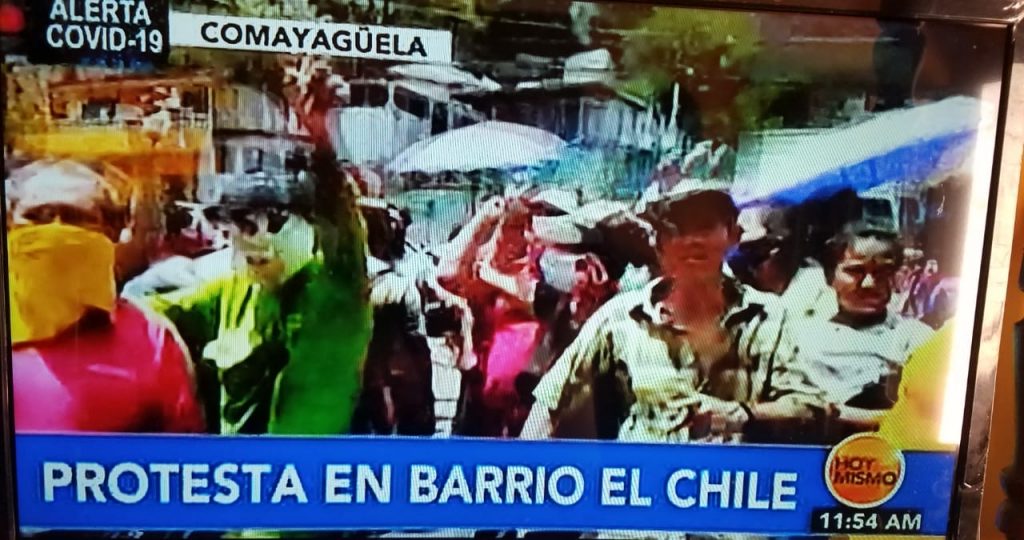
Honduras reports 110 confirmed cases and two deaths so far. The government has imposed strict controls on the population (a lockdown, as in many countries). Our partner organization, Vecinos Honduras notes that, “poor families do not have enough food and water in their homes, and I do not think they can bear this situation.” Vecinos Honduras is not able to continue their work in villages. Staff are largely confined to their homes, but the organization is carrying on with whatever work they are able to do through remote communication and virtual meetings.
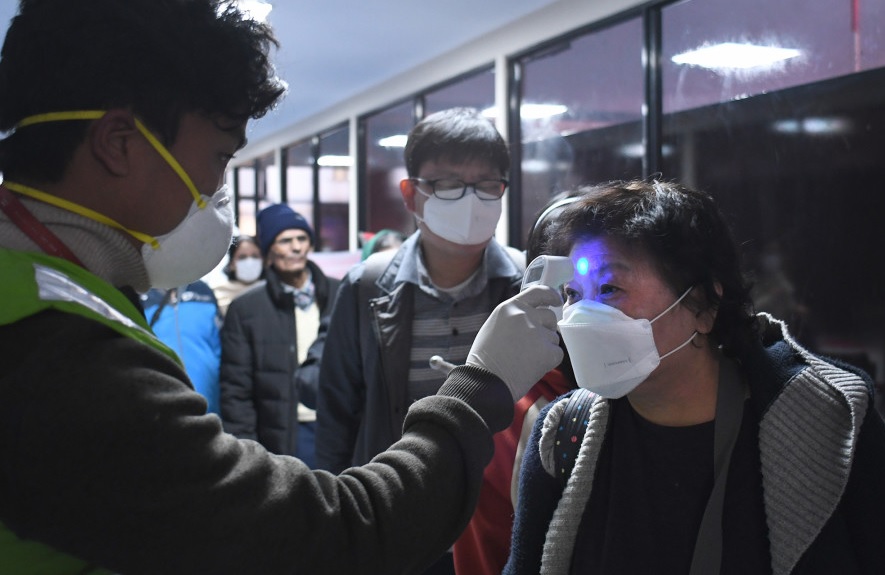
Nepal reports only five confirmed cases so far. The government decided to lockdown the entire nation for at least one week starting on March 24th. And they have cancelled all tourist visas for the entire climbing season. The mobility of people and vehicles (except for emergencies) is halted. Our partner organization, Tamakoshi Sewa Samiti, runs a small hospital in the district (Ramechhap) – it remains open and they have prepared an isolation ward. An engineer from Kathmandu is visiting Ramechhap as a part of final evaluation of the current drinking water program. He is now stranded in Ramechhap until the lockdown is lifted. We had planned to send two World Neighbours Canada directors and a Rotarian from Oliver to do a final monitoring tour of the current project supported by Global Affairs Canada, but the trip was cancelled.
Everyone associated with World Neighbours Canada feels a bond with the communities that we support, and we are very concerned as the coronavirus threatens lives and livelihoods. Over the next weeks and months, we will keep in touch with our partner organizations and stand ready to support them as much as we are able.

For nearly two weeks Vecinos Honduras’s Executive Director, Edwin Escoto, toured British Columbia speaking to groups large and small about Honduras and the work Vecinos Honduras is doing. It was an inspiring week! Edwin is a dynamic speaker, and despite doing every one of his twenty presentations in his second language, he was clear, passionate and inspiring.
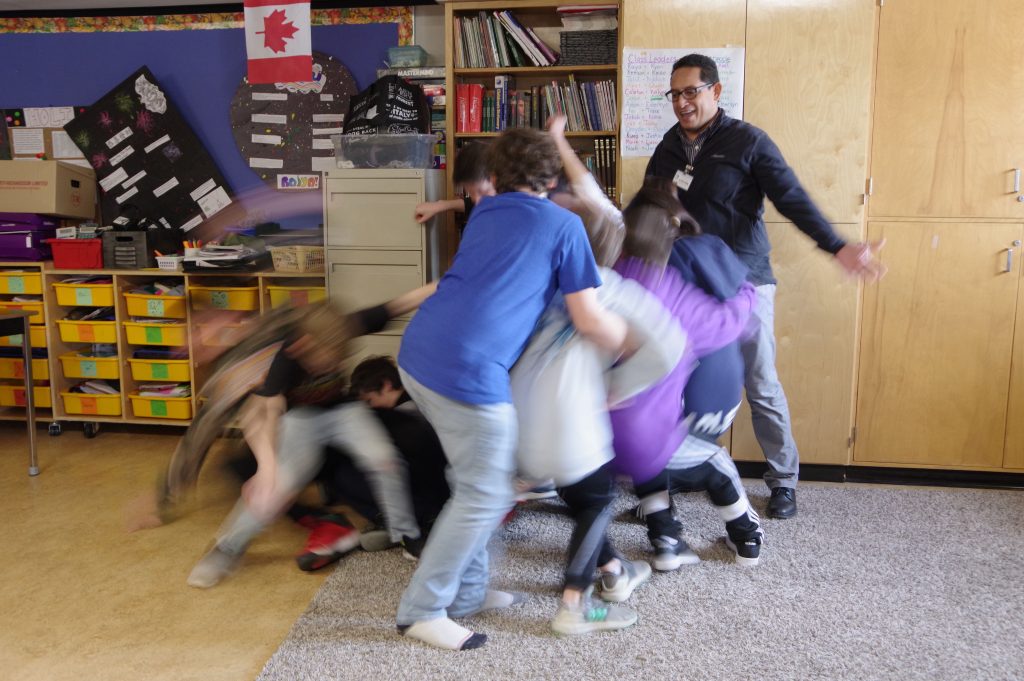
During Edwin’s stay in Canada, he did presentations in Vancouver, Kamloops, Vernon, Kelowna, Cranbrook, and Oliver. He presented to over 500 Canadians; including talks to elementary, secondary and university students as well as several presentations to the public, and with post secondary institutions. He was also able to conduct a webinar with the BC Council for International Cooperation (BCCIC) which is available for anyone to watch online at (https://drive.google.com/drive/folders/1W4nZwz9zgMZV_IG1JghZhMbfNCcZvfQ-?usp=sharing.
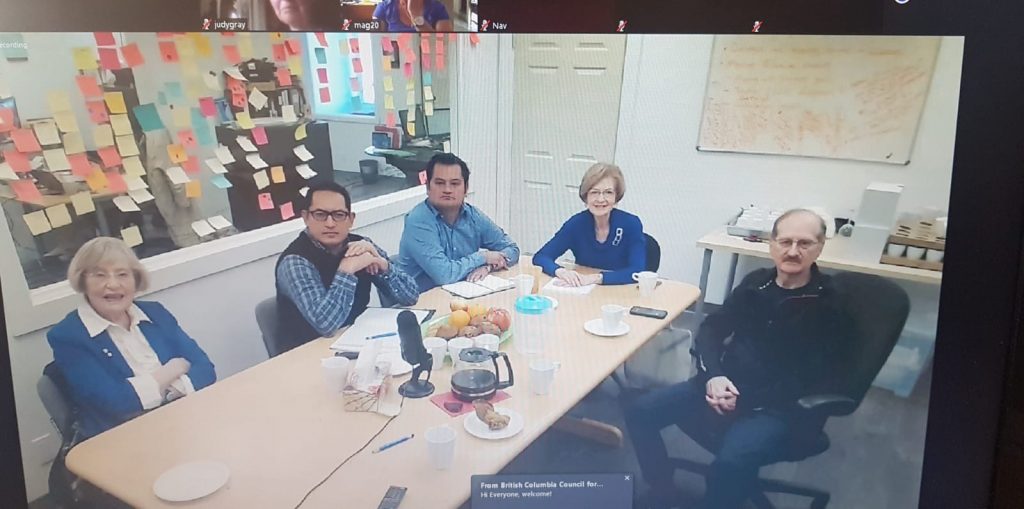
Edwin was deeply honoured to be invited to come to Canada and share the activities of his organization and the situation in his country. Response from participants was very positive. To be able to put a face and details to a complex situation opened the eyes of many Canadians to international development and Canada’s role in assisting these countries.
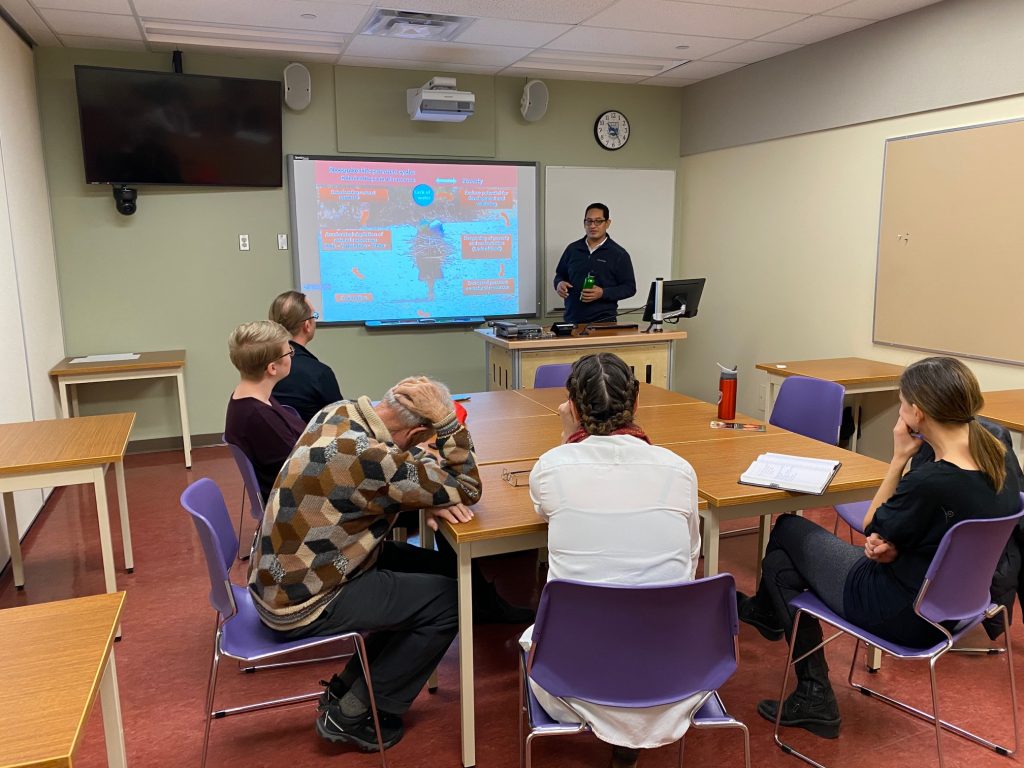
We, at World Neighbours, want to thank everyone who welcomed Edwin, attended talks, invited him into their classrooms, their homes, and made him feel so welcome on his first visit to Canada. A special thank you to BCCIC, Global Empowerment Coalition of the Okanagan (GECCO) and the Okanagan Regional Library for cosponsoring talks.
At the end of his trip there was some concern about his ability to return to Honduras as countries were closing their borders due to Covid-19 concerns. Luckily, he was able to change flights and returned to Honduras a few hours before Honduras shut its borders. He is now self isolating at home.
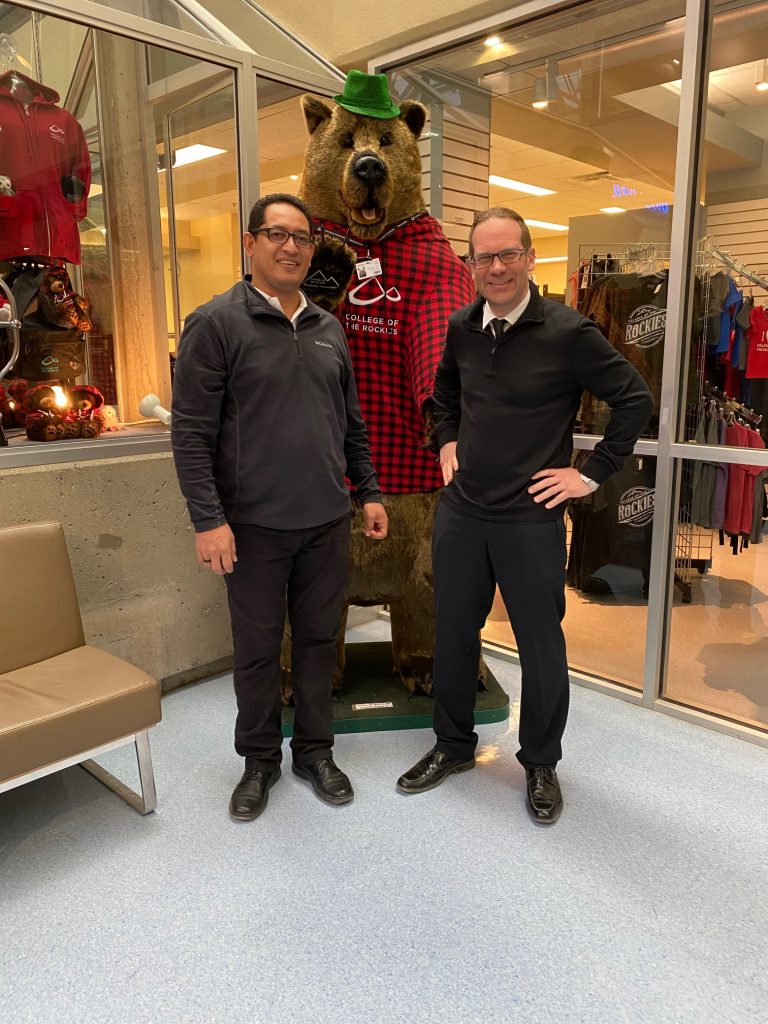
Thank you Edwin!
Edwin Escotos’s recent visit to British Columbia was made possible through World Neighbours Canada Society grant from Global Affairs Canada under the Maternal Newborn Child Health initiative.
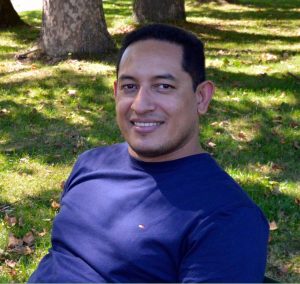 There will only be four public opportunities to hear from Vecinos Honduras Executive Director, Edwin Escoto, when he visits BC this week. He will be speaking to community groups, schools and universities but there will only be four public opportunities.
There will only be four public opportunities to hear from Vecinos Honduras Executive Director, Edwin Escoto, when he visits BC this week. He will be speaking to community groups, schools and universities but there will only be four public opportunities.
Luckily, the first opportunity will be online and so you can either join in person in Vancouver or log on for a “lunch and learn.”
This is a great opportunity to learn about our partner, their work, and Honduras in general.
March 4 12:00-1:00 In Vancouver and online
More details at https://www.bccic.ca/event/bccic-groundtruthes-sustainable-development-from-a-southern-perspective-honduras/
March 7th, 3:00-4:00pm in Vernon, BC at the Vernon Library
More details at: https://www.facebook.com/events/613214629459257/
March 8th, 3:00-4:00pm in Kelowna, BC at the Kelowna Main Branch Library
More details at: https://www.facebook.com/events/245404449812777/
March 12th, 7:00-8:30pm in Oliver, BC at Christ the King Catholic Church
We hope to see you there.